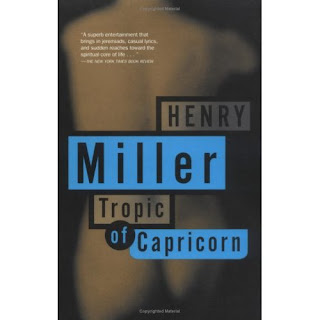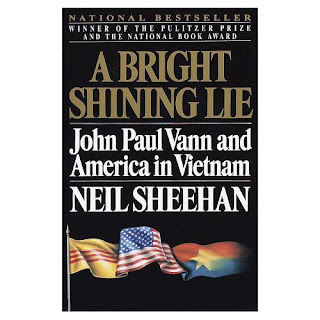
1. Watership Down , by Richard Adams.
I read this several times as a kid. This was my Tolkien. A small group of loyal rabbits puts blind faith and trust in a runt who has apocalyptic visions of their home being destroyed (land developers). They elect to set on a journey to find safe lands, much to the strong objections of their own leadership and community. It's a big allegory for trusting your intuition, testing friendship, and a society's leadership interpreting warnings as a threat to it's power. And talking rabbits. Cool.

2. Tropic of Capricorn , by Henry Miller.
This is Miller's version of Dante's Inferno, an autobiographical and surreal account of his youth in New York City before he set off for Paris to be an expat writer. Thick with Miller's stream-of-consciousness prose, he depicts himself a powerless and sad man struggling in the belly of the beast that is the city, before his rebirth as an artist. I picked up this book at the perfect time in my life, when I was right out of art school and living at the mercy of New York during the Dinkins administration, before the city was cleaned up. Crack vials on the sidewalk, prostitutes down the street every night, and a baptism by mugging two weeks after I arrived made Miller's depiction of an artist's struggle in hell-on-earth resonate. I wasn't alone.

3. The Closing of the American Mind, by Alan Bloom
I think I picked this up on one of those nights when I didn't have any dates or money, living La Vie Boheme, and trolling bookstores to kill time. It's a critical examination of how American schools teach self-validation, not self-examination in preparation for the real world. They do nothing to challenge already long-instilled values that prevent a capability of seeing beyond western-centric philosophies. I read this book in the early 90's but much of what it preaches is very relevant today.

4. A Bright Shining Lie, by Neil Sheehan
Visiting Vietnam in 1994 made me realize how ignorant I was about the war and it's politics. (Movies and television had been my only real "education", which turned out to be grossly simplified and one-sided.) I realized I had easily swallowed a lot of inaccurate nonsense not just about Vietnam, but really anything beyond first-hand experience. This book was about the early period of the war when the U.S. just sending in advisers. But it was already a doomed venture as the top brass and administration only saw what they wanted to see, not what was really going on. - An ongoing American pastime.
 5. The Children , by David Halberstam.
5. The Children , by David Halberstam.One of my all-time favorites. A very thick book (try lugging an 800-page hardcover on crowded subways for casual reading) that profiles the lives of a handful of young black college students from the time they decided to participate in 1960 lunch counter sit-ins to protest segregation, through marches and freedom rides through the south, through the power struggles between various civil rights organizations, to life in the decades after the Civil Rights bill was signed.
The reason I like this book is because it honestly tracks the character arcs of these various students and how the movement had an effect on them. Some, like John Lewis, made civil service his life's pursuit and became a popular U.S. Congressman after starting out as a sharecropper . Others like Marion Barry, seemed to revel in the attention and power in a negative way, leading to his election and then downfall as a corrupt mayor of D.C. But many others returned to humble and honest lives once the civil rights bill was signed. It's hard not to be attracted to the intense and intimate bond they all shared while fighting for something noble and just.
Following the young students around the south was David Halberstam's (who passed away this year) first assignment as a young journalist before he moved on to cover wars in the Congo, then Vietnam where he won a Pulitzer, like his peer Neil Sheehan .


No comments:
Post a Comment